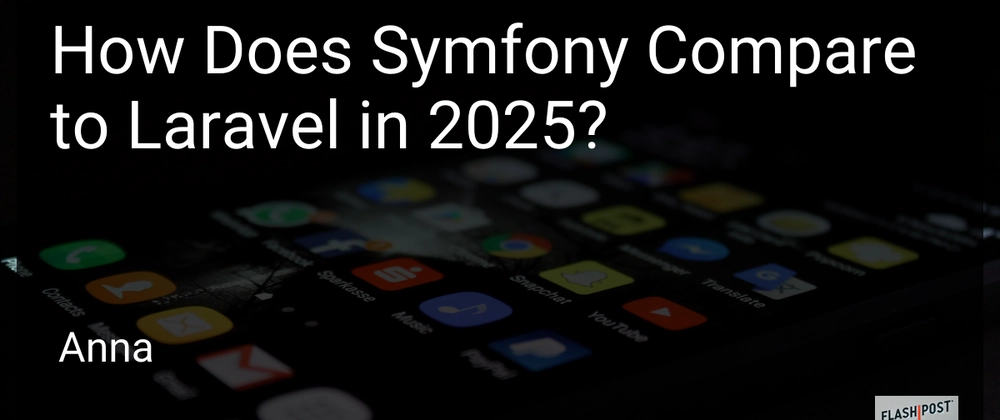In the rapidly evolving landscape of web development, choosing the right framework is crucial for developers. In 2025, Symfony and Laravel remain two of the most popular PHP frameworks, each with its strengths and weaknesses. This article compares Symfony and Laravel, helping developers decide which is best for their needs.
Overview of Symfony and Laravel
Symfony
Symfony is known for its robustness and flexibility. It promotes reusable PHP components and is favored by large enterprises for its scalability and extensive documentation. Symfony's architecture is mature, and it leverages best practices to ensure reliability. Discover more about vendor folder organization in Symfony.
Laravel
Laravel, on the other hand, is celebrated for its elegance, simplicity, and expressive syntax. It provides tools for routing, authentication, and caching. Laravel's ecosystem, including multiple packages and user-friendly features, makes it popular among small to medium-sized projects.
Key Comparisons Between Symfony and Laravel
Performance and Scalability
Symfony excels in high-performance applications, largely due to its emphasis on reusable components and a focus on testing and quality assurance. This makes it ideally suited for large-scale projects. Meanwhile, Laravel provides adequate performance for most applications, especially when using caching mechanisms like Redis or Elasticsearch.
Learning Curve
Laravel is often preferred for its gentle learning curve, thanks to extensive documentation, tutorials, and clear syntax. Symfony, with its steeper learning curve, appeals to developers looking for a deeper understanding of PHP and enterprise application architecture.
Community and Support
Laravel boasts a vibrant community and frequent updates, ensuring it evolves with new trends. Symfony also offers strong community support but is more prevalent in Europe compared to Laravel's global appeal.
Flexibility and Customization
Symfony's flexibility allows developers to create customized solutions, making it best for complex applications where fine-tuning is necessary. Laravel takes a more opinionated approach, optimizing common tasks and encouraging rapid development.
Integration and Tools
Both frameworks offer excellent tools for integration. For example, Symfony can be easily combined with front-end technologies like Angular. To learn more about integrating Angular with Symfony, check this Angular Symfony integration guide.
Use Cases
- Symfony: Best suited for large enterprises, complex systems, or applications where component reuse is critical.
- Laravel: Ideal for startups or small businesses needing rapid development and a quick time-to-market.
Installation
Setting up these frameworks is straightforward, with Symfony requiring Composer and some configuration, especially on Windows. For a step-by-step guide on setting up Symfony, visit this Symfony framework installation tutorial.
Conclusion
In 2025, choosing between Symfony and Laravel depends on the project requirements. Symfony is the go-to for complex, scalable applications and enterprise-level solutions. Meanwhile, Laravel offers ease of use and speed of development, making it suitable for smaller projects or when time and simplicity are of essence.
Both frameworks have their unique advantages. Understanding your project needs will guide you in selecting the perfect fit for your development endeavors.



Top comments (0)